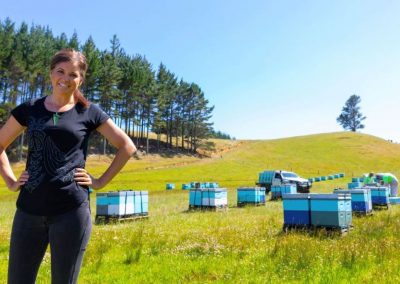Māori trade organisation, Te Taumata congratulates the Prime Minister Jacinda Ardern and new Minister for Trade and Economic Growth, Damien O’Connor for “hitting the ground running” so soon after the election with today’s RCEP announcement.
Te Taumata partners with the Government on trade-related issues.
Chris Karamea Insley, Chair of Te Taumata, says the RCEP acknowledges the huge importance and enormous potential of Māori businesses.
“When Māori business prosper, whānau prosper – and so does the whole of Aotearoa. We are excited about the opportunities the RCEP presents our businesses, who now have fewer hurdles to jump to get their product to international consumers and less red tape holding them back from entering new markets,” he says.
Māori businesses will gain valuable access to a third of the world’s consumers under the Regional Comprehensive Economic Partnership (RCEP) Agreement, virtually signed by Minister O’Connor today (SUB: Sunday November 15).
By consolidating a number of existing Free Trade Agreements (FTA), streamlining documentation requirements, and reducing red tape for Māori exporters, the RCEP aims to simplify trade and deepen relationships with the Asia-Pacific region. The agreement will likely increase demand for New Zealand inputs into regional supply chains.
The FTA was also signed by ten ASEAN (the Association of Southeast Asian Nations), members as well as Australia, China, Japan and South Korea.
The countries that have signed the agreement (Brunei-Darussalam, Cambodia, Indonesia, Laos, Malaysia, Myanmar, Philippines, Singapore, Thailand, Viet Nam, Australia, China, India, Japan, South Korea and New Zealand) account for 30 per cent of the world’s population and Gross Domestic Product (GDP).
The RCEP is projected to increase New Zealand’s GDP by around NZ$2 billion, with co-signatories representing 56 per cent of New Zealand’s total exports and 61 per cent of foreign investment in New Zealand.
The Ministry of Foreign Affairs and Trade says the RCEP will help New Zealand deepen its trade and economic connections in the Asia-Pacific region, the engine room for the global economy.
The RCEP is also expected to play a key part in New Zealand’s Trade Recovery Strategy, helping put Aotearoa in the best possible position to recover from the impacts of COVID 19 and seize new opportunities for exports and investment.
Māori enterprises account for 40 percent of New Zealand’s forestry, 50 percent of the country’s fishing quota, 30 percent of sheep and beef production, 10 percent of dairy production and 15 percent of kiwifruit production.
The agreement improves access for Māori exporters wanting to access new markets, such as Indonesia, by eliminating tariffs on sheep meat, beef, fish and fish products, liquid milk, grated and powdered cheese, honey, avocados, tomatoes and persimmons.
“Critically, one in every four jobs created in New Zealand is derived from international trade. We have heard this message loud and clear from our whānau at this year’s Regional Hui on Trade,” says Mr Insley.
“As we watch how COVID is decimating the northern hemisphere, I am genuinely encouraged that this announcement will help open up market access to these Asian and South East Asian countries, while the rest of the world’s markets could be effectively closed for months, if not years, to come .”
“The prospects for our food and other primary products producers especially look encouraging, leading to the prospects of more jobs for our whānau.”
The RCEP upholds the Treaty of Waitangi, and protects Māori interests in relation to the protection of te reo Māori, traditional knowledge and cultural expressions, mātauranga Māori, indigenous flora and fauna and taonga species.


